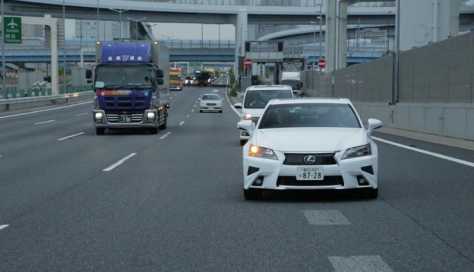Why Driverless Cars Could Become a Target for Road Bullies
Autonomous vehicles will have to learn the written and unwritten rules of the road to integrate with human drivers.
It's a jungle out there on US roads. There's a near-constant jockeying for position as everyone attempts to get where they're going as fast as they can via overcrowded highways and streets.
In reality, drivers all exist somewhere along a spectrum, with the unnecessarily aggressive on one end, the overly cautious on the other, and the rest falling somewhere in between. Drivers are constantly processing information and anticipating what their fellow motorists may do based on a variety of factors, often without consciously thinking about it.
Whether we want to admit it or not, most of us size up other drivers based on their age, sex, race, and the vehicle they're driving. For example, if you spot a young person driving an expensive sports car, you may deduce—based on your own attitudes and their actions—that they're either a reckless ne'er-do-well or a timid teen out joyriding in their parents' vehicles.
Most experienced drivers innately assess such situations, but they will soon have to contend with autonomous vehicles (AVs) being thrown into the mix . Like humans, AVs will have to react to the actions of other drivers, but also other drivers' reaction to them. More aggressive drivers could take advantage of AVs' hesitancy, while others may not know how to socially relate to robo-cars. Things could become really complicated, according to a recent study.
Bullying Robo-Cars
Perhaps not surprisingly, a study from The London School of Economics and Goodyear found that AVs could be easily bullied by more assertive drivers. But the survey also found that so-called "cooperative" drivers—those who "see driving more as a social activity and enjoy the interaction with other drivers on the road"—are actually more apprehensive about self-driving cars.
The survey's "driving sociability" index used the common scenario of letting another driver cut in front of you—or cutting in front of another driver —as cars merge into a single lane as a gauge of whether someone would be considered more a "cooperative" road user. Ninety percent of those who landed in the top half of the driving sociability scale said they would never or only occasionally cut the line.
But of the more "combative" half, 42 percent, said that they would "sometimes, usually, or always" cut in on another driver. And aggressive drivers would feel even less remorse about cutting off an autonomous vehicle, while more social drivers may not know how to deal with a robo-car.
"If you view the road as a social space, you will consciously negotiate your journey with other drivers," the survey said. "People who like that negotiation process appear to feel less comfortable engaging with AVs than with human drivers.
Driverless Cars: When the Internet Takes the Wheel
"By contrast," the survey added, "the people more open to AVs are those who have a more 'combative' view of the road, who perhaps see AVs as easier agents to deal with on the road than other humans." The more aggressive drivers who responded to the survey said they're more likely to deal with self-driving cars the way they would with "learner drivers." One respondent replied, "I'll be overtaking [them] all the time because they'll be sticking to the rules."
The study also points out that it's not only aggressive drivers who may try to punk AVs. Pedestrians and cyclists could also take advantage of the fact that AVs prioritize safety and dash out in front of them. And this could cause problems for AV developers in deciding how the robo-cars should react.
So AVs will not only have to learn the written and unwritten rules of the road, but also include in their calculations the body language, facial expressions, and the occasional … um, emphatic gesture of other drivers and road users.




Comments
Post a Comment